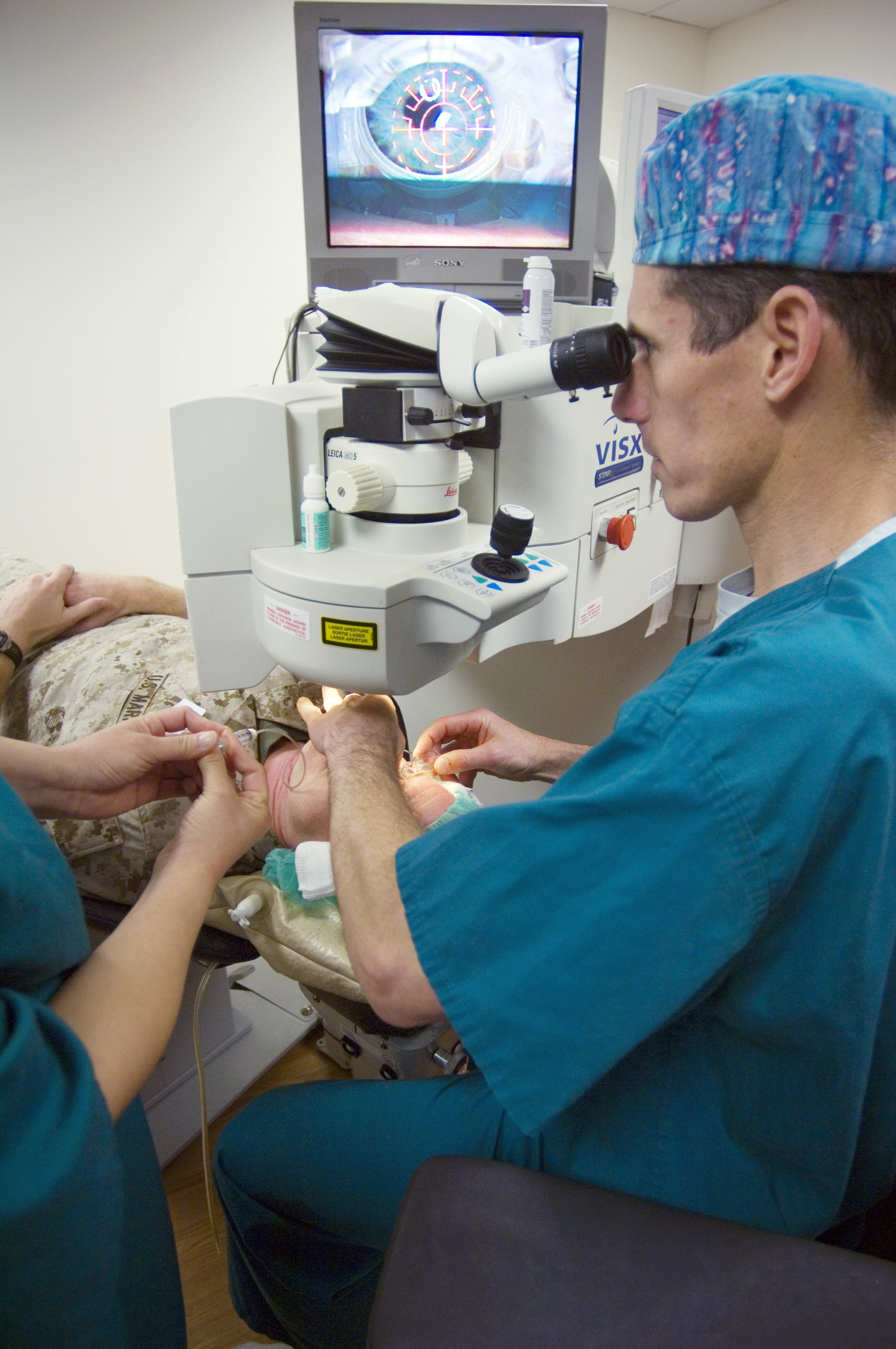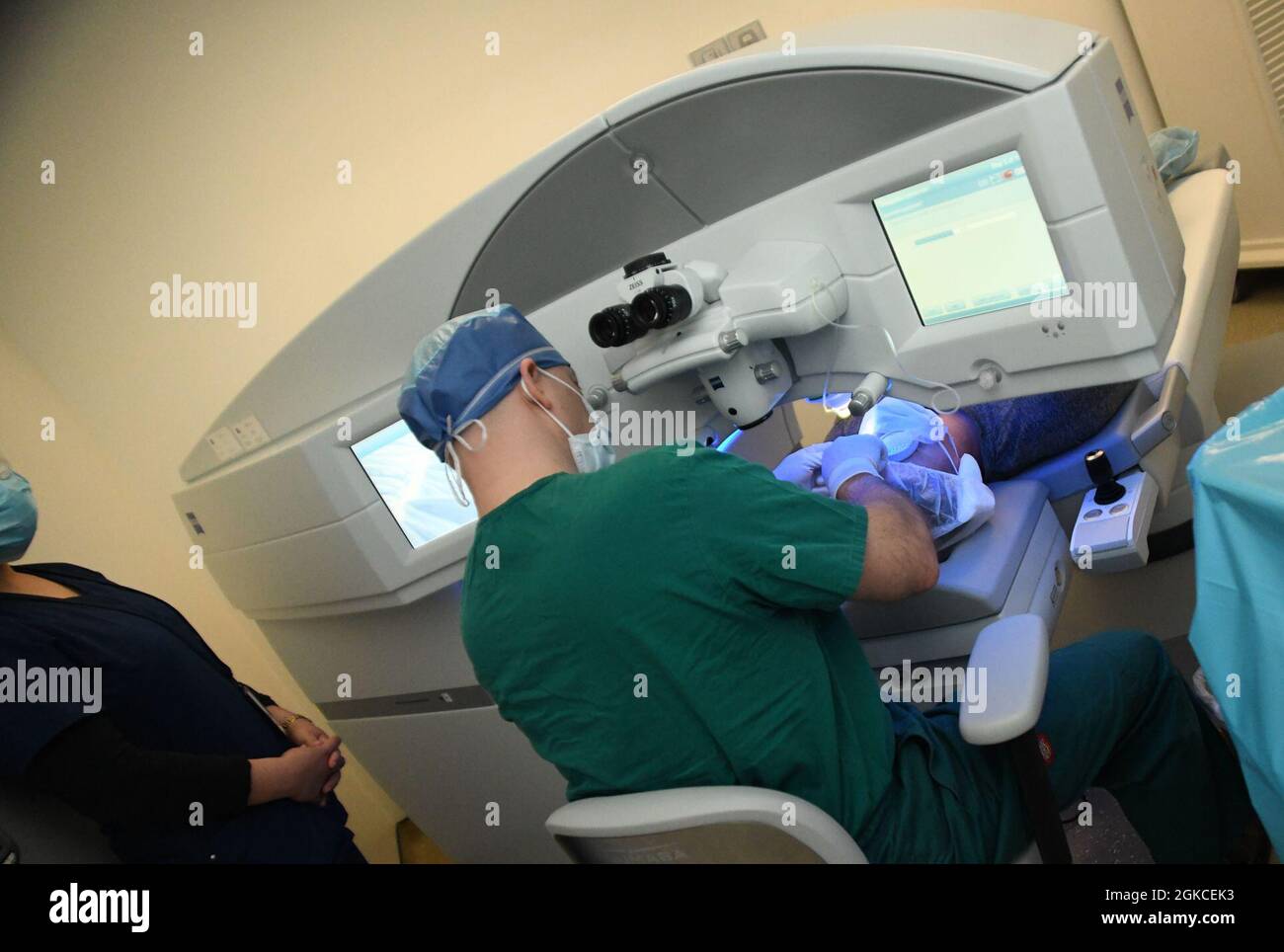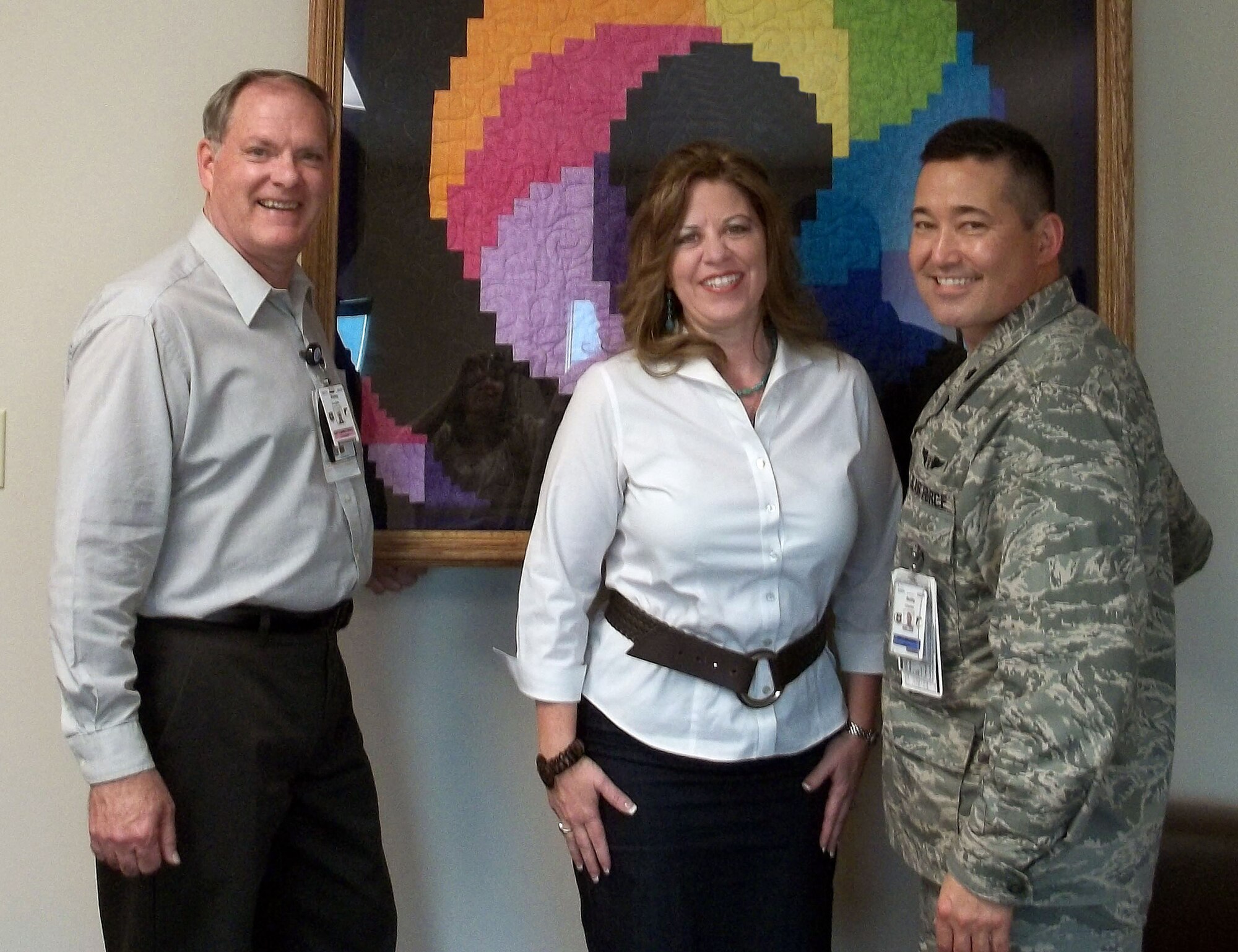Military Eye Surgery - There is little or no pain during recovery with LASIK, while about 10% of PRK patients may experience "mild to moderate" pain or discomfort 24 to 36 hours after surgery. This pain can be relieved with eye drops and oral pain relievers.
Both PRK and LASIK are outpatient procedures that require about an hour to be spent in an eye surgery center. For both procedures, the surgeon will put anesthetic eye drops in your eyes and use an eye speculum to hold the eyelids open during the operation.
Military Eye Surgery
 Source: api.army.mil
Source: api.army.mil
Don't rush to join; First prepare yourself physically. Take advantage of an additional six months after eye surgery to prepare and train for doctors at the Military Entrance Processing Station (MEPS). If you are enrolled in a TRICARE health plan and meet eligibility requirements, you may also be able to enroll in FEDVIP (Federal Vision and Dental Insurance Program), which may cover regular eye exams and prescription glasses.
Prk Vs Lasik Surgical Techniques
But LASIK has advantages over PRK for military members, including a shorter recovery and the ability to return to work more quickly. Military members may be able to return to full duty in six weeks with LASIK compared to three months with PRK.
For this reason, both LASIK and SMILE laser eye surgery are becoming more common among military members. Smile laser eye surgery can be a good option for military members because there are no flaps to move and the recovery time is similar to LASIK.
If you need prescription glasses, your coverage through TRICARE approaches depends on who you are. For example, active duty members and active members of the National Guard or reserve members can get a pair of glasses of your choice, a pair of sunglasses and a pair of glasses of your choice from your military clinic or hospital optometry clinic.
TRICARE vision plans may include coverage for glasses and contact lenses, routine eye exams, and medically necessary eye surgery. Plans vary based on your service level, age and your sponsor (such as active duty or retired or your family member is active duty).
 Source: upload.wikimedia.org
Source: upload.wikimedia.org
Tricare Coverage For Glasses And Contacts
Active duty service members now have the option of distance vision correction if they are medically and administratively eligible. Thanks to advanced technology and the Army's commitment to operational research and safety, more than 350,000 service members have undergone refractive surgery.
According to ophthalmologist and surgeon, Army Lt. Col. (Dr.) Gary Legault, "refractive surgery consultant to the Army, approximately 95 percent of patients achieve a correction level of 20/20 or better, enabling them to perform combat duties without dependence on glasses."
. Current wait times for surgery average four to eight weeks, which is dramatically shorter than in the early days of the program." LASIK involves creating a surgical flap with a laser at the front of the cornea and then shaping the underlying surface.
This procedure usually takes five to 30 minutes. Recovery time from LASIK is usually a few days to a few weeks. "LASIK and PRK are excellent procedures, but there are significant differences in vision recovery, with LASIK being much faster. On many levels, faster vision recovery is beneficial, such as faster return to work," Roberts said.
Federal Employees Dental Vision Insurance Program Fedvip
This does not mean that every patient will necessarily notice a worsening or improvement in these symptoms, but these statistics can give a general idea of how PRK compares to LASIK in terms of side effects.
"All service members who still wear glasses or contact lenses should be evaluated for refractive surgery," Townley said. "The longer they're without glasses, the less time they have to enjoy life without glasses ... we're ready when they are," he said.
 Source: live.staticflickr.com
Source: live.staticflickr.com
If you are interested in laser eye surgery and active duty, your next step is to speak with your military ophthalmologist and/or visit one of the twenty-six military laser surgery center sites. Military vision standards were once a major potential obstacle for those who wanted to serve in programs that required near-perfect vision.
PRK and LASIK eye surgery, which the military has allowed for the past two decades, has allowed many people to join and pursue specialized jobs they might not otherwise qualify for. Implantable columnar lenses (ICLs) are available at some laser centers and are used to correct very high prescriptions when eye parameters may not be safe to perform LASIK or PRK.
Are You A Candidate For Prk Or Lasik?
This surgery requires placing a small plastic lens inside the eye. I really appreciated all your useful information through articles and podcasts for BUDS preparation. I have poor eyesight and am thinking of laser eye surgery in the future.
Should I go for laser eye surgery now or wait until I enlist and have it done in the Navy? Do you have any helpful information or suggestions? Thank you again for all the resources you provide for those preparing for military service.
Ryan is the real problem here, though. Some candidates who joined first and met physical qualifications later could not transfer out of their jobs because there were too few and their year group of SEALs was too full.
For them, this does not mean a shift to BUD/S. According to an AllAboutVision.com survey of laser eye surgery centers that offer upfront pricing, the average cost of PRK was $2,300 per eye, or $4,600 total for both eyes.
 Source: uploads-ssl.webflow.com
Source: uploads-ssl.webflow.com
Prk Vs Lasik Outcomes
However, LASIK can cost several hundred dollars more per eye than PRK at certain eye centers. First, I now realize that joining the fleet and trying to transfer to the SEALs was a mistake. I had to do a simple job to pay for the PRK, but that's not changing now.
Now I have to wait atleast 2 years before applying for rate change. I hope to be able to get PRK by then. LASIK, performed by an experienced eye surgeon, may have a flap-related complication rate of about 1%.
Flap complications may include movement of the flap after surgery or small wrinkles in the cornea (flap striae). Flap complications can usually be successfully treated by your LASIK surgeon if they occur. For years, the aviation community has been hesitant to approve individuals who have undergone eye surgery without more extensive research.
Now, hundreds of study pilots, NFOs and special operators have met qualified vision standards and maintained safety while performing their jobs at altitude and under the stress of diving. **Your total cost will be based on your individual needs and determined by your service provider.
Want To Learn More About Military Life?
The average total cost of LASIK surgery for both eyes is $4,800. Interest on promotional purchases will be charged from the date of purchase at a reduced annual interest rate of 17.90% on purchases with 60 month promotional financing.
Fixed monthly payments are required until paid in full and will be calculated as follows: On a 60-month promotion - 2.5339% of the initial promotional purchase amount. Fixed monthly payments will be rounded up to the next highest whole dollar and may be higher than the minimum payment that would have been required had the purchase been non-promotional.
 Source: c8.alamy.com
Source: c8.alamy.com
General account terms apply to non-promotional purchases. For new accounts: Purchase APR 26.99%. The minimum interest is $2. Existing cardholders should refer to their credit card agreement for applicable terms. Subject to credit approval. "Vision affects a lot of what we do in the military, and problems with glasses or contact lenses, especially in a work environment, can cause a lot of problems," said Air Force Lt. Col. James Townley, a consultant in refractive surgery.
. Find out how PRK (photorefractive keratectomy) compares to LASIK (laser-assisted in situ keratomileusis) in terms of cost, surgical technique, recovery time, pain, complications and side effects. This guide also covers PRK vs. LASIK for the military, police, and other professions that may require excellent vision.
TRICARE plans use either a cost-sharing system or an out-of-pocket payment system. A co-pay is a fixed amount you pay when you receive services, while a cost-sharing program includes a percentage of the total health services.
If you use a TRICARE network provider, your costs will be lower than if you used an out-of-network provider. "Military vision standards were once a major potential barrier for those wishing to serve in programs that require near-perfect vision. PRK and LASIK eye surgery have allowed many individuals to join and qualify for specialized careers such as the Air Force, Special Forces, and others. Careers
"Primarily," said Army Maj. (Dr.) Paul Houtling, an ophthalmologist and surgeon. "This was a new paradigm for our military members," he added. Through your regional contractor you'll find a broad. network of providers. for vision services.
, depending on your plan, you can usually use an optometry clinic at a military hospital or clinic or use an in-network and contracted civilian ophthalmologist. Both PRK and LASIK can be used to treat refractive errors in vision (nearsightedness, farsightedness).

, including farsightedness (hyperopia) and presbyopia, a condition that occurs by age 40. The latter is common and can make vision difficult in both cases when performing close-up tasks such as reading. In contrast, the eye that has healed from PRK returns to its preoperative state.
For this reason, some surgeons recommend PRK for people with very active lifestyles or professions such as law enforcement. If you are a retired soldier, you will order your glasses from the Navy Ophthalmic Support Training Activity Command.
If you are an active duty soldier and do not live near a military hospital or clinic, you can also order glasses there. Active Reservists and National Guard members will receive glasses ordered from the Naval Ophthalmic Support Training Command through their units.
Because the eye can take so long to fully heal after PRK, some surgeons prefer to perform the surgery on one eye and then perform the procedure on the other eye a month or two later.
With LASIK, doctors usually perform surgery on both eyes in the same operation. Active service members do not pay benefits out of their own pockets. Family members of active-duty service members also do not have to pay out-of-pocket fees if services are in-network and a referral is used.
Additional charges may apply for pharmacy services and TRICARE elective plans. PRK vs. LASIK for pilots: According to the Aviation Medicine Advisory Service, LASIK has several advantages for pilots over PRK, including less "central blur" and the ability to achieve 20/20 vision more quickly.
Pilots should carefully consider all potential disadvantages of laser eye surgery, including possible deterioration of night vision. Twenty years ago, the Department of Defense launched the Warfighter Refractive Eye Surgery Program. The purpose of the program, then and now, is to improve vision on the battlefield, improve readiness, retain or train military members in occupations that require excellent uncorrected vision, and make headgear and glasses less burdensome.
If you're looking to get rid of contact lenses or glasses, you can weigh the pros and cons of PRK vs. LASIK to determine which type of laser eye surgery is best for you. PRK vs. LASIK for Law Enforcement: Despite the longer recovery time, PRK may be a better option than LASIK for those who work in law enforcement because of the risk of LASIK flap detachment during training or physical contact on the job.
military lasik policy, corrective eye surgery military, lasik eye surgery army, army laser eye surgery, prk eye surgery military, getting lasik in the army, military lasik eye surgery, lasik and military
0 Comments